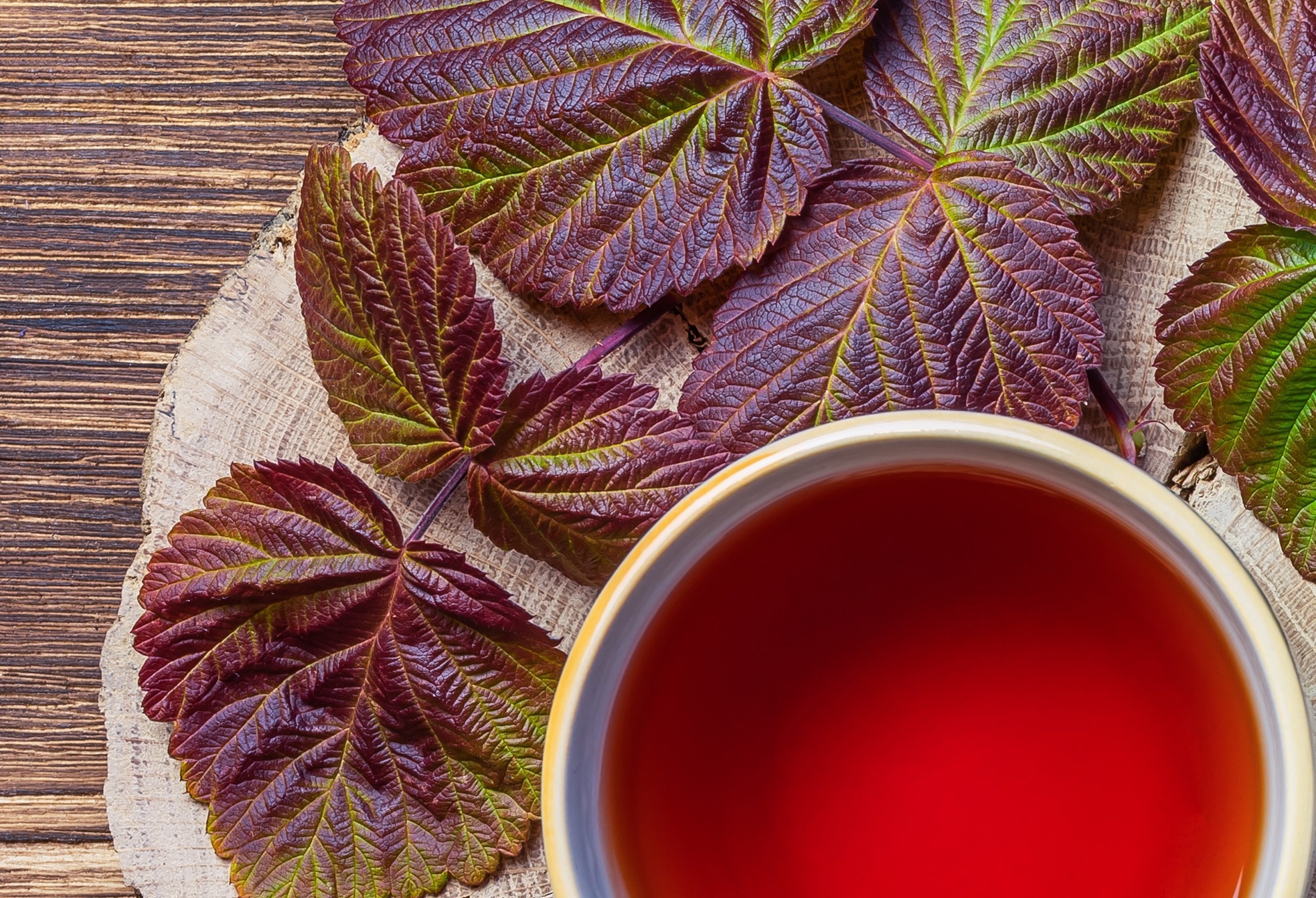
In an evolving health landscape, emerging research continues to highlight concerns that could impact everyday wellbeing. Here’s the key update you should know about:
Researchers found that raspberry leaf tea significantly reduced early postprandial glucose and insulin spikes when consumed with sucrose, but not glucose, in healthy adults. The effect is linked to ellagic acid–rich polyphenols that inhibit carbohydrate-digesting enzymes.
Study: Effects of Raspberry Leaf Tea Polyphenols on Postprandial Glucose and Insulin Responses in Healthy Adults. Image Credit: Evgrafova Svetlana / Shutterstock
In a recent study published in the Nutrients journal, researchers tested a 10 g raspberry leaf tea infusion alongside 50 g of oral carbohydrate loads to examine early postprandial glucose and insulin responses in healthy adults.
They found that the tea significantly lowered blood glucose at 15 and 30 minutes (−1.19 mmol/L and −2.03 mmol/L, representing 25.6% and 43.6% reductions) and insulin at 15 (−113.9 pmol/L), 30 (−161.8 pmol/L), and 60 minutes (−139.4 pmol/L) when co-ingested with sucrose, with no effect when co-ingested with glucose. This effect is plausibly mediated by ellagic acid–rich polyphenols inhibiting α-glucosidase and β-fructofuranosidase (sucrase), delaying sucrose hydrolysis.
Background
Type 2 diabetes mellitus (T2DM) is a major and growing global health issue, with prevalence doubling from 1990 to 2022, now affecting more than 800 million people worldwide.
The condition results from inadequate insulin production or impaired insulin action. This leads to chronic hyperglycemia and complications such as cardiovascular disease, neuropathy, kidney damage, and the need for amputations.
While medications exist, safer and more affordable alternatives are increasingly sought to support blood sugar control.
Polyphenols are naturally occurring compounds found in wines, vegetables, fruits, and teas. They have shown promise in improving glucose metabolism. These compounds act as antioxidants, reduce inflammation, enhance insulin sensitivity, and slow carbohydrate digestion. In turn, they blunt blood sugar spikes.
Raspberry leaves, which have long been used in herbal medicine, are rich in bioactive compounds such as phenolic acids, ellagitannins, and flavonoids.
Despite their nutritional potential, most research has focused on the raspberry, not the fruit. There are only limited studies on raspberry leaves. Previous analyses identified ellagic acid and quercetin derivatives as dominant in raspberry leaves. These compounds have strong antidiabetic and antioxidant properties.
About the study
Anecdotal evidence that raspberry leaf tea lowers glucose for people with gestational diabetes led researchers to investigate whether it can similarly reduce postprandial insulin and glucose responses using a randomized crossover trial.
They recruited 22 healthy individuals between the ages of 18 and 65, with a body mass index (BMI) ranging from 18 to 34.9 kg/m². Eligible participants exhibited normal fasting glucose levels and no history of recent antibiotic use, chronic illness, or diabetes. They did not smoke, take supplements or medications that could affect their metabolism, or drink alcohol to excess. Pregnant individuals and those with food allergies were excluded.
The participants attended four test sessions, with two to four-week washout periods in between. The four interventions were 50 g of glucose, glucose and 10 g of raspberry leaf tea, 50 g of sucrose, or sucrose and raspberry leaf tea. The tea was brewed for 5 minutes; each serving contained approximately 50 mg of total polyphenols, predominantly ellagitannins and ellagic acid.
Blood samples were collected at baseline and after 15, 30, 60, 90, and 120 minutes post-consumption. Glucose was analyzed using the hexokinase method, and insulin via automated immunoassay, with strict quality control procedures. Statistical analyses employed analysis of variance (ANOVA) with post hoc tests and independent t-tests.
Key findings
Chemical analysis confirmed that raspberry leaf tea is rich in polyphenols, with ellagic acid being the dominant compound. A five-minute infusion yielded the highest polyphenol content, supporting its use as the standardized preparation in this trial.
Of the 22 who enrolled, 20 completed all study visits. Participants were healthy adults with comparable baseline glucose levels across all test conditions.
When sucrose was consumed, the tea significantly reduced early postprandial glucose and insulin responses compared to sucrose alone. With sucrose, mean glucose fell by 1.19 mmol/L at 15 minutes and 2.03 mmol/L at 30 minutes (p = 0.001 and p = 0.0004, respectively). Insulin levels were suppressed by 113.9 pmol/L at 15 minutes (p = 0.019), 161.8 pmol/L at 30 minutes (p = 0.0008), and 139.4 pmol/L at 60 minutes (p = 0.025). These effects suggest a moderating role of raspberry leaf tea in attenuating sucrose-induced hyperglycemia and hyperinsulinemia.
In contrast, when glucose was consumed, no statistically significant differences in blood glucose or insulin were observed between tea and control conditions. Both glucose and insulin peaked at 30 minutes before returning to baseline by 120 minutes, regardless of tea intake.
This confirms that the beneficial effects of the tea are exclusive to disaccharide metabolism, particularly targeting sucrose digestion rather than monosaccharide absorption.
Conclusions
This trial is the first to demonstrate that raspberry leaf tea reduces postprandial glucose and insulin levels following sucrose intake, but not glucose intake, in healthy adults. The effect may be due to the tea inhibiting the activity of enzymes that break down carbohydrates, such as α-glucosidase and sucrase, primarily through ellagic acid and other polyphenols.
Importantly, the tea did not produce gastrointestinal side effects often seen with pharmaceutical enzyme inhibitors, suggesting it may offer a well-tolerated dietary strategy for moderating glycemic responses.
Strengths include the randomized crossover design and the use of venous blood sampling, which provides accurate metabolic measurements.
However, limitations include the acute (single-dose) design, the lack of blinding and placebo control, the small and homogeneous sample size, the short duration, and the focus on only two carbohydrate sources. These factors restrict generalizability and prevent conclusions about long-term effects.
In conclusion, raspberry leaf tea shows promise as a natural modulator of postprandial glycemia. Larger, longer-term studies in diverse populations, including those with impaired glucose control, are warranted.
Journal reference:
- Effects of Raspberry Leaf Tea Polyphenols on Postprandial Glucose and Insulin Responses in Healthy Adults. Alkhudaydi, H.M.S., Spencer, J.P.E. Nutrients (2025). DOI: 10.3390/nu17172849, https://www.mdpi.com/2072-6643/17/17/2849

